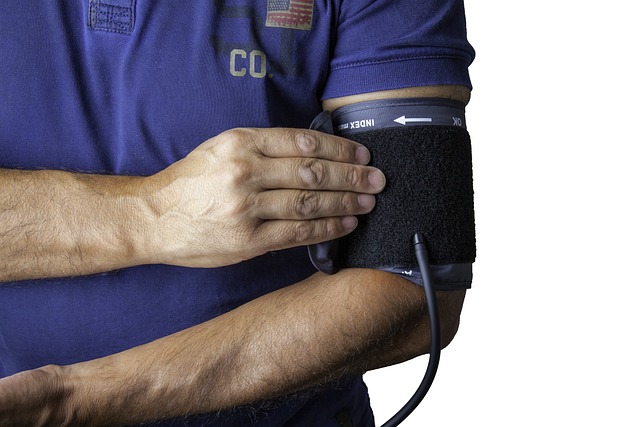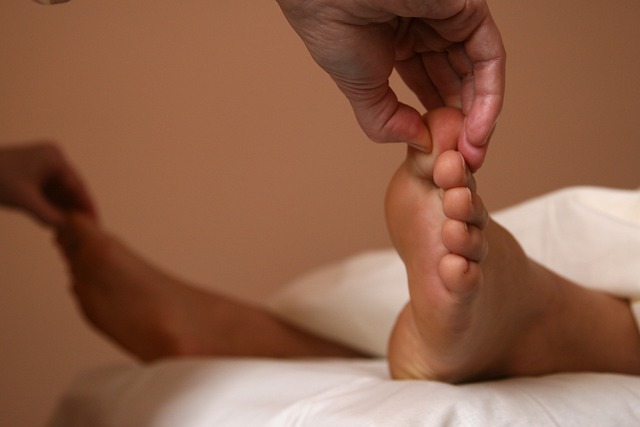Injury recovery and physical care for athletes goes beyond traditional physical therapy. Incorporating tailored nutrition plans into physical therapy programs significantly enhances healing, tissue repair, and overall recovery. Key nutrients support muscle repair, reduce inflammation, boost the immune system, and optimize body composition. This holistic approach combines mobility restoration exercises, pain management strategies, and muscle strengthening routines with dietary guidance to accelerate rehab, prevent future injuries, and improve athletic performance.
Injury recovery and physical care are not just about movement and exercise; proper nutrition plays a pivotal role in supporting tissue repair and enhancing overall performance. This article explores the critical integration of nutrition into various aspects of rehabilitation, including physical therapy programs and post-injury strategies. We delve into sports injury recovery plans, mobility restoration exercises, effective pain management techniques, and muscle strengthening routines, all underpinned by evidence-based nutrition principles to ensure optimal healing and prevention of future injuries.
- Understanding Nutrition's Role in Injury Recovery and Physical Care
- Integrating Nutrition into Physical Therapy Programs
- Post-Injury Rehabilitation: A Holistic Approach with Nutrition
- Sports Injury Recovery, Mobility Restoration, and Effective Pain Management
Understanding Nutrition's Role in Injury Recovery and Physical Care

Understanding Nutrition’s Role in Injury Recovery and Physical Care
Nutrition plays a pivotal role in injury recovery and physical care, often overlooked yet indispensable. For athletes or individuals undergoing post-injury rehabilitation, optimal nutrition supports not just healing but also enhances the effectiveness of physical therapy programs and mobility restoration exercises. A well-planned diet can aid in reducing inflammation, promoting tissue repair, and expediting the recovery process, thereby accelerating return to sport or daily activities.
Incorporating specific nutrients like protein for muscle repair, omega-3 fatty acids for anti-inflammatory benefits, and antioxidants to combat oxidative stress is crucial. Additionally, pain management strategies can be complemented by dietary choices, such as incorporating foods rich in vitamins B6 and B12, which are known to help alleviate neuralgia. Moreover, injury prevention tips can be addressed through a balanced diet that supports overall health, boosting immune function and maintaining optimal body composition to minimize the risk of future injuries.
Integrating Nutrition into Physical Therapy Programs

Integrating nutrition into physical therapy programs is a game-changer in enhancing injury recovery and physical care. Beyond the traditional focus on mobility restoration exercises, pain management strategies, and muscle strengthening routines, proper nutrition plays a pivotal role in post-injury rehabilitation. A well-tailored dietary plan can accelerate tissue repair, bolster immune function, and optimize overall healing outcomes.
When incorporated into sports injury recovery plans, nutritional interventions offer targeted support for athletes. By focusing on the right balance of macronutrients, vitamins, and minerals, physical therapists can help patients manage pain, reduce inflammation, and enhance performance during the critical stages of post-injury rehabilitation. This holistic approach not only speeds up recovery but also provides valuable injury prevention tips for future athletic endeavors.
Post-Injury Rehabilitation: A Holistic Approach with Nutrition

In the realm of post-injury rehabilitation, a holistic approach that integrates nutrition alongside physical care stands out as an effective strategy for optimal recovery and tissue repair. Beyond traditional physical therapy programs, incorporating targeted dietary interventions can significantly enhance the effectiveness of mobility restoration exercises, pain management strategies, and muscle strengthening routines. Nutrients play a pivotal role in supporting wound healing, reducing inflammation, and promoting overall cellular repair.
Nutritional support tailored to an individual’s needs can accelerate recovery timelines and improve outcomes. This involves strategic planning of meals and supplements to include essential amino acids, vitamins, and minerals that facilitate tissue regeneration. Moreover, incorporating injury prevention tips within a comprehensive rehabilitation plan can mitigate future risks by addressing underlying dietary deficiencies and implementing sustainable lifestyle changes. Thus, combining physical therapy with nutritional guidance empowers individuals to actively participate in their recovery process, fostering faster and more complete healing.
Sports Injury Recovery, Mobility Restoration, and Effective Pain Management

Injury recovery and physical care is a multifaceted process that goes beyond initial treatment. For athletes or active individuals, effective sports injury recovery plans are essential to not only restore mobility but also to prevent future injuries. Physical therapy programs tailored for post-injury rehabilitation play a crucial role in accelerating this process. These programs often include targeted exercises for mobility restoration, focusing on range of motion and muscle flexibility to ensure a full recovery.
Pain management strategies are integral to the injury recovery process, enabling individuals to engage in effective muscle strengthening routines without discomfort. By incorporating specific pain management techniques alongside mobility restoration exercises, patients can progress through their post-injury rehabilitation more comfortably. Additionally, injury prevention tips learned during and after physical therapy can help individuals avoid similar injuries in the future, fostering a healthier and more active lifestyle.
Integrating nutrition into injury recovery and physical care is no longer an optional strategy but a crucial component of effective treatment. By understanding the role of nutrients in tissue repair and inflammation reduction, healthcare professionals can enhance the benefits of physical therapy programs. Post-injury rehabilitation that incorporates holistic approaches with nutrition supports not only mobility restoration exercises but also pain management strategies. For athletes, sports injury recovery plans that include optimal nutrition and muscle strengthening routines are key to preventing future injuries and improving overall performance. Embracing these integrated methods ensures a comprehensive approach to injury prevention and treatment.
